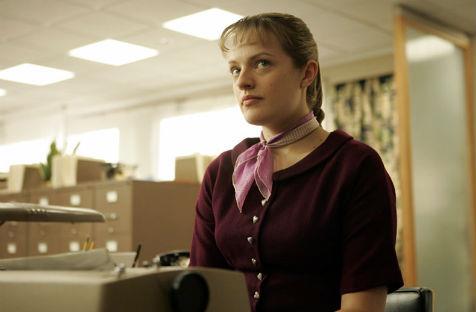Famous creatives like Peter Carey, Fay Wheldon, Bryce Courtenay, Danielle Steel and Phillip Adams all started their writing careers as copywriters – why not you?
As a writer, actor, screenwriter or musician, you’ll know how hard it is to make a decent living and write your novel, screenplay or sonata at the same time. The constant tension between these two important pursuits can sometimes render us incapable of pursuing either with passion or conviction.
Believe it or not however, there is a way to channel your artistic sensibilities and make a good living at the same time. How? By becoming a copywriter.
What do copywriters do?
‘Copy’ is the name given to the words you see in brochures, newspaper ads, direct mail letters, videos, websites, radio ads and more. The work of copywriters is all around you.
For example, when you’re in the supermarket and pick up a packet of soup or baked beans, those words you see on the pack were written by a copywriter.
When you see a billboard or hear an ad on the radio, those words you see and hear were written by a copywriter. Same with the letters you receive from your bank, gym or insurance company.
How much does it pay?
Philip Duthenberry, a well-known copywriter once said: ‘Copywriting is the second most lucrative form of writing. The first of course, is ransom notes.’ He was being facetious (we think), but there is a kernel of truth in his words as copywriters can earn anywhere between $50 to $250 per hour and, best of all, they can do it from home. Most jobs take a minimum of 10 hours so you can see how quickly and easily the pay packet builds up.
What’s the demand for copywriters?
The demand for copywriters is strong, more so now than ever before thanks to the proliferation of websites, social media, blogs and video. At last count there were over 582,716,657 registered websites out there – somebody has to write all that copy, so you can see why the demand for copywriters is soaring.
All sorts of organisations need copywriters – hospitals, arts festivals, football clubs, councils, political parties, small businesses etc, and because companies are constantly competing with others and changing their product line-up, the marketing literature need changing too. The opportunities are infinite.
How do I get started?
The first thing you need to do is to create a portfolio. If you’ve got nothing to show a potential client, do a freebie or contra job for your mates and it won’t be long before you have a plethora of samples to show clients. Just tap into your artistic network and you’ll discover a huge need for copywriting – think about all the materials an artist needs to promote their next play, film, exhibition, CD: flyers, websites, funding proposals, social media sites, video scripts, program notes, print ads – all these need to be written. Keep soft and hard copies of everything you do and present them attractively to create a portfolio.
How do I find work?
Like most sole-operators, finding business is about tapping into your existing networks and letting them know what you can do for them. We call copywriting the secret occupation because so few people know what we do, and even fewer know where to find a good copywriter. But once a client finds a good copywriter, they tend to stick with them.
The best way to find work is to set up a simple website, develop a portfolio of work to show clients what you’re capable of, and then spread the word far and wide to friends, family and networks that you’re ready for work.
Another good option is to hook up with an advertising agency. Agencies are are crying out for talented copywriters and if you like a secure, well-paid job in a fast- moving industry, that would be a great option
But for artistic types who love variety and an unstructured routine, working freelance offers the all-important freedom that most creative people crave. Sure, you have to find the work but the freedom is worth it.
Why do it?
Clearly the opportunity to earn good money is the prime motivator for must people in copywriting. But there are other advantages too.
Apart from earning money promoting other people’s productes, copywriters become better at promoting their own. Knowing how to write great copy can help you promote your own artistic practice. We all know the success of an event or creative endeavour often rests on the way it’s promoted so having a template and structure that helps you write great copy every time is a huge asset.
Many creative people find copywriting a viable occupation because it suits their inherent nature in so many ways – it can be part-time, it pays very well, it’s creative, requires a high degree of focus, is intellectually demanding and has variety. What’s more, you can work from home (or the beach, or a café in Bali) and you don’t need to invest in expensive equipment to get started – a computer and phone are all you need.
Keith Hockton is a writer who uses copywriting to support his travels. He says learning copywriting has enabled him to pursue his novel-writing. ‘I’m living in Penang now and writing pretty much non-stop. I’ve just finished another book, which I’m editing at the moment, and about to start another.’
Money, time and flexibility: that’s a tempting trio for any struggling creative.





